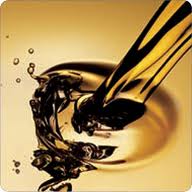Lubricating oils or lubricants are used in a variety of settings and functions, from the car in the garage for the car on the track. lubricating oils are even at work in the factories that make cars. lubricating oils to protect mechanical equipment and metals of the harsh demands of work environments. Help metals and equipment last longer, which in turn can add to cost savings for both the family car and industrial environment.
When it comes to choosing the right lubricant for your work, consider several factors: the type of equipment, function and speed of operation and environmental factors such as whether the equipment is indoors or outdoors, temperature operation, and the presence of moisture and dust. You should also consider how the lubricant you choose affect your lubrication program and the cost of lubricants.
1. Basic Lubrication
Lubricating oils come in different varieties such as general purpose or synthetic. According Kluber Lubrication oils used are mineral oil, petroleum distillates, while synthetic oils are artificially produced from other compounds. Synthetic lubricants have advantages such as better resistance to thermal degradation at high temperatures and resistance to thickening of the low temperatures.
In general, the purpose of oil to lubricate the equipment to reduce friction between moving parts, and to protect it from contaminants such as dirt and moisture. In some cases, the oil also acts as a means of hydropower.
2. Heat Reduction
Another effect of lubricating oil is heat reduction. By reducing friction, lubricating oil, of course, reduce the heat generated by friction. A running engine or any machine with moving parts has continued to generate enough friction heat over 1,000 degrees. The heat is sufficient to melt the bearings and other metal parts. Enough oil in the engine or the system will help extend the life of your equipment.
3. Inhibition of corrosion and rust
When oxygen combines with certain metals, which causes oxidation. Oxidation, also known as rust, shiny metal can cause to lose its luster. But more importantly, causes rust on the seizure of moving parts and prevents the computer operating properly. According to Southwest Spectro Chem Labs, some lubricants are called lubricants in vapor phase, as it contains alkaline amines that evaporates at a certain temperature and metal surfaces with a layer of oxide layer of organic matter prevention.
4. Preventing pollution
Lubricating oils can act as a seal in a system to keep contaminants out. Southwest Spectro Chem Labs as "a good seal lubricant easily absorb the gases, as well as easy to release them when heated or air or deleted glycol." Lubricating oils also act to keep out dirt, water and other particles that can clog the sensitive systems.
5. Filtration
Some types of lubricating oils containing additives coagulant in them. These coagulants that circulate through the system and connect to contaminants in the system. Once you have connected to the clotting system or disposed of or falling into a sink to be removed.
6.Make the right choice for your application
If you are simply trying to choose the right motor oil for your vehicle, it is necessary to weigh all the factors on their own to make a decision on what oil to use. Just talk to your mechanic.
For industrial applications, many companies like Exxon Mobil and Kluber Lubrication offer consultancy services to suit your particular environment. A trained technician can help facility managers select suitable lubricants for applications, which in turn will help the company save money on maintenance costs.
Tags: Why We Use Lubricants, lube oils, lube, oils, oil, auto lubricants, car lube oil

 10:39 PM
10:39 PM
 admin
admin




0 comments:
Post a Comment